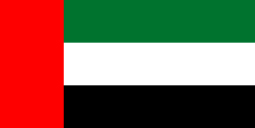FMCG – FOOD INDUSTRY

Amit Kakkar
Blog Writer
FMCG – FOOD INDUSTRY : TRENDS SHOW SIGNS OF EVOLUTION
(A) Increasing trend towards private labels noticed on a large scale
Product/Brand Diversification is the buzz word. Retailers are investing more and more in their own brands to increase margins and customer loyalty. Private labels are one of the dominant trends in Fast Moving Consumer Goods and are a growing threat to traditional brands. There is an increasing trend towards direct-to-consumer (D2C) models, with manufacturers directly managing their end customer interactions through their own online and offline distribution channels.
(B) Here comes the era of the Anti-Brand Brands
In addition, companies are threatened by a new type of group that gives more priority to products than marketing and promotes itself as an anti-brand brand. Today starting a new brand in rice, honey, beverages, spices, pickles, jams has become the easiest task for the startups and they are providing innumerable variety. Of course attractive packaging makes them a player that cannot be unnoticed today by consumers and they have posed threat to even giants like Nestle and Unilever.
(C) Niche markets gain in importance
The paradigm shift away from mass consumption towards increasingly individual consumption and differentiated offerings (sustainability, environmental compatibility, physiology, etc.) is helping in creation of a number of niche markets on a global scale. Although the Food & Beverage trends are not always associated with strong growth and high profits, they should not be ignored with a focus on credibility and sympathy.
(D) Transparency and sustainability
Consumers have become more critical and have an increased need for transparency regarding the origin of ingredients and manufacturing processes. This need for reinsurance is reflected in high expectations of natural products as well as ethical and ecological demands on production, animal husbandry, distribution channels and packaging. The pressure on manufacturers to publish “complete and honest” product information is therefore increasing. According to a latest survey, in the future consumers will also be more willing to pay more for sustainable clean label high quality products.
(E) Wellness oriented branding
Post pandemic era, the food brands are increasingly using wellness in products to highlight transparency, natural ingredients and the health benefits. This is also reflected in a trend to acquire “healthier” product lines.
(F) Trend towards non-alcoholic beverages
The responsible consumption of alcohol is developing into a new lifestyle. Heineken, and Guinness are just a few of the beverage giants that responded to this trend last year with new types of non-alcoholic beer. Such non-alcoholic beer is gaining demand in gulf regions as well where expat community is in abundance.
(G) Snacking culture with quality standards
Due to the increasing flexibility of the world of work, the topic of “snacking” is also becoming increasingly important. According to Innova, 63 percent of millenials that have responded by saying that they replace meals with snacks. Here, too, the trend is towards organic, high-quality and sustainable products.

